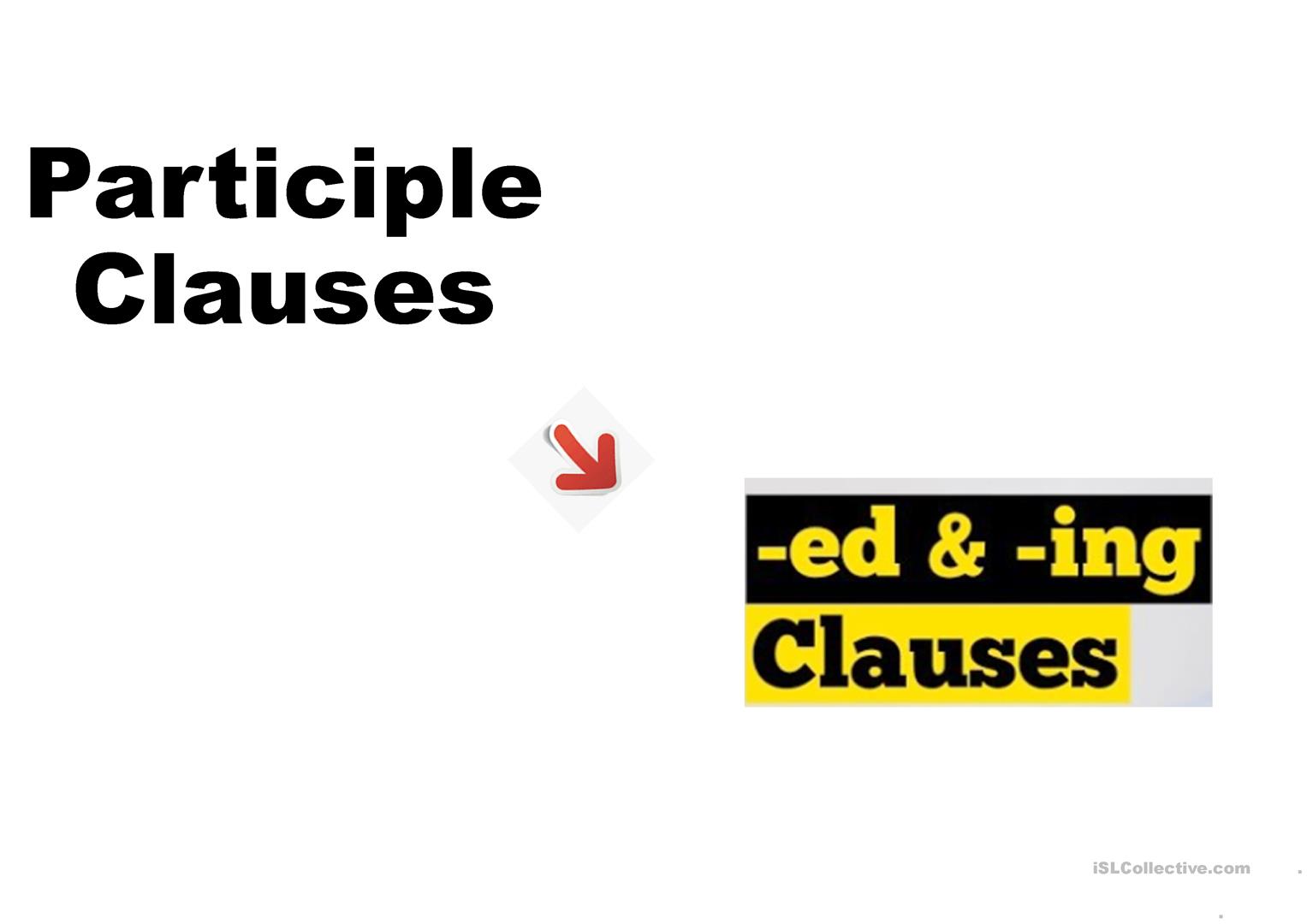¤ FOR + -ing versus TO-infinitive ←
¤ Clauses of purpose
We use clauses of purpose to talk about people’s purposes, the reasons why they do things.
⇒ [quiz 01] ⇔ [quiz 02] ⇔ [quiz 03]⇐
⊗ The infinitive of purpose
The infinitive of purpose can only be used when the subject of the main clause and the subject of the purpose clause are the same:
– Why did you get up so early? – To go jogging.
– Why are you going to the chemist’s? – To buy some cough medicine.
⊗ Clauses of purpose with “so that”
We use ‘so that…’
a) When the subject of the main clause is different from the subject of the purpose clause:
«The presenter spoke very slowly and clearly so that/in order that everybody could/would understand him.» ( the presenter – everybody = two different subjects)
«Jenny gave Mark some money so that he could buy some new shoes.»
In informal English “so” is commonly used instead of “so that/in order that”.
«He wants a big car so he can impress his friend.»
b) With “can” and “could” (so that … can/can’t/could/couldn’t…):
«He’s learning German so that he can work in Germany. «
«The bank robbers tied up the manager so that he couldn’t escape.»
«That pop star has a high wall around his house so that photographers can’t get in. «
c) When the purpose clause is negative (so that … won’t/wouldn’t…)
«I got there early so that I wouldn’t have to stand.»
«They’re staying in a hotel next summer so that they won’t have to cook.»
⊕ Tenses used in purpose clauses with “so that”
When we use a present or future tense in the main clause, we use so that ……will/won’t/can/can’t in the purpose clause.
«I have lent Richard €300 so that he can buy/will be able to buy a nice winter coat.»
With a past tense in the main clause, we use so that …… could(n’t)/would(n’t) in the purpose clause.
«I lent Richard €300 so that he could buy/would be able to buy a nice winter coat.»
⊕ Notes:
«She worked hard so that/in order that she would pass all her examinations before the end of the semester.» (the subject is the same: she)
With the same subject the infinitive construction is more common than the “so that/in order that” construction.
«She worked hard in order to/so as to pass all her examinations before the end of the semester.»
In spoken English “to” is more common than “in order to/so as to”.
«We have to hurry to get there before the beginning of the meeting».
However, “to” cannot be used with a negative.
«He spoke in a low voice in order/so as not to disturb us.»
(Not: *’He spoke in a low voice not to disturb us‘)
But you can always use the infinitive construction with the verb «AVOID«:
«He set off early to avoid driving at night.»
“not to” can be used to express alternatives:
«I went to the conference not to give a paper but to present a poster.»
÷ ÷ ÷ ÷
∞ Purpose vs Cause/Effect . . . ⇐
♦ Result clauses ⇒ [quiz] ⇐
÷ ÷ ÷ ÷
¤ Relative Clauses … ⇔
In this overview of relative clauses, Alex looks at identifying (or ‘restrictive’) and non-identifying (or ‘non-restrictive’) clauses, relative pronouns (who, whom, whose, which, that) and how to use commas when using relative pronouns in your writing ↓
⇒[quiz 01] ⇔ [quiz 02] ⇔ [quiz 03]⇐
¤ Reduced Relative Clauses ↓ [Brian Rhodes makes an advanced lesson easy]
φ To avoid ambiguity, the relative pronoun should be placed as near as possible to its antecedent. Compare:
The boy who won the gold medal is the son of my neighbor, Peter. (= The boy won the gold medal.)
The boy is the son of my neighbor Peter who won the gold medal. (= Peter won the gold medal.)
÷ ÷ ÷ ÷
Participle clauses are a form of adverbial clause which enables us to say information in a more economical way. We can use participle clauses when the participle and the verb in the main clause have the same subject.
Φ The meaning and use of participle clauses
Participle clauses give information about condition, reason, result or time:
• Condition (in place of an if-condition):
‘Looked after carefully, this coat will keep you warm through many winters.’
Compare: If you look after it carefully, this coat will keep you warm through many winters.
• Reason (in place of words like ‘so’ or ‘therefore’):
‘Wanting to speak to him about the contract, I decided to arrange a meeting.’
Compare: I wanted to speak to him about the contract so I decided to arrange a meeting.
• Result (in place of words like ‘because’ or ‘as a result’):
‘I had no time to read my book, having spent so long doing my homework.’
Compare: I had no time to read my book because I had spent so long doing my homework.
• Time (in place of words like ‘when’, ‘while’ or ‘as soon as’):
‘Sitting at the cafe with my friends, I suddenly realised that I had left the oven on at home.’
Compare: While I was sitting at the cafe with my friends, I suddenly realised that I had left the oven on at home.
• Participle Clauses explained . . . →[01]← / →[02]←
⇐



Deja un comentario